Monica Restrepo and I are uncontrollably close. She, daughter of my father’s brother-yes, my cousin- was born just nine months before me back in the 90s.
She taught me how to climb stairs, we went through puberty rites together, approved of each other’s significant others-or didn’t-and have been best friends for over 22 years.
However, it hasn’t been easy. Ours is a story with tangents such as cultural displacement, political asylum, family disputes, and continuous rootlessness.
We had been apart for seven years, since my political asylum was denied in the United States back in 2008, but she came in May and rediscovered a country she left 15 years ago, when she was just eight years old.
I was curious and excited to get her perspective on the culture shock she could feel among her own. This is our Colombian Story of Return, mine permanent, hers temporary.

The Origins
Monica, like me, was born in Manizales, Colombia in the coffee triangle, a city known for its proximity to the volcano Nevado del Ruiz and close-knit community with traditional (read: old-fashioned) values.
She had attended two different Catholic schools before her family uprooted to the United States in 2000. We had family in Kansas, so it was logical that, as Colombians, that’s where we would go.
We understood we had roots in family, but growing up we learned that roots can ground you, surround you and possibly suffocate you.
My family followed one year later and on arrival, like hers, filed for political asylum. We attended separate public schools and took in American culture.
After pending for years, her asylum was approved, and mine was denied. My family left on “voluntary leave,” but there is nothing voluntary about being exiled from a country you understood as your own. We were 15 years old, and so began our separation.
For seven years, we stood 4251.01 kilometers from each other, carefully planning our reunion.
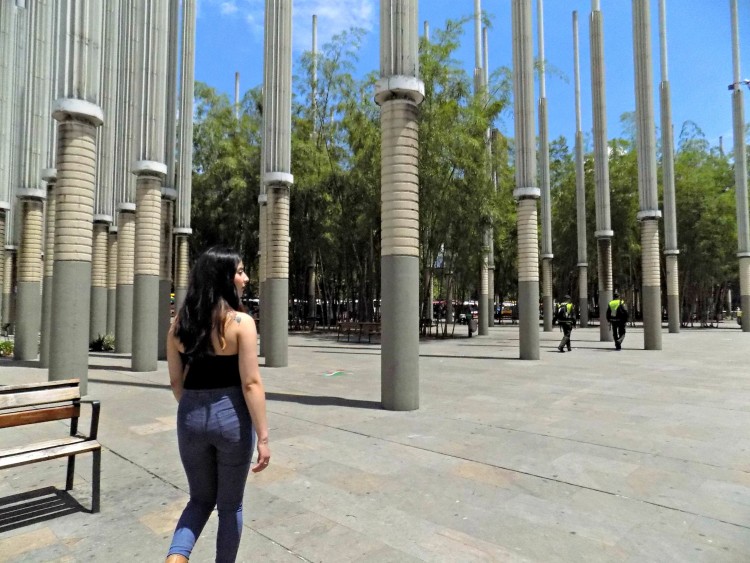
The Return
May 29th, 2015 at 5:30 p.m. I patiently waited at the international arrivals gate in the Rionegro airport. When she came out, we ran towards each other, crashed into a stance of relief.
“How is it that you still smell the same?” she asked burying her head in the nook of my shoulder, her suitcase at our feet.
From that moment on, I studied her patiently. Her accent that was almost a typical paisa accent, her behavior that wasn’t American or Colombian, it was all her own.
She compared several scenarios to ones she had seen volunteering in Mexico or visiting Puerto Rico; she saw similarities between cultures and she understood the jokes- most of them, anyway.
“Muchas gracias señor/señora” she’d say to any given bus driver, mango salesmen, Metro staff, and whoever else might have done her a service.
She laughed at the wit of Colombian humor; she slammed every door she could lay her hands on, sending taxi drivers into madness.
“¿Quiere un mango?” (Do you want some mango?) she’d ask the blind man sitting next to her on La 70, placing a piece of green fruit in his hand.
“Don’t acknowledge street salesmen or catcalls” I’d say, But in moments, she’d smile at artisans on the street telling them all how beautiful their work was, or laugh loudly at the old man who’d look at her and yell “An angel!” And somehow, it was all okay.
She felt at home like she had left Colombia a few months and came back home.
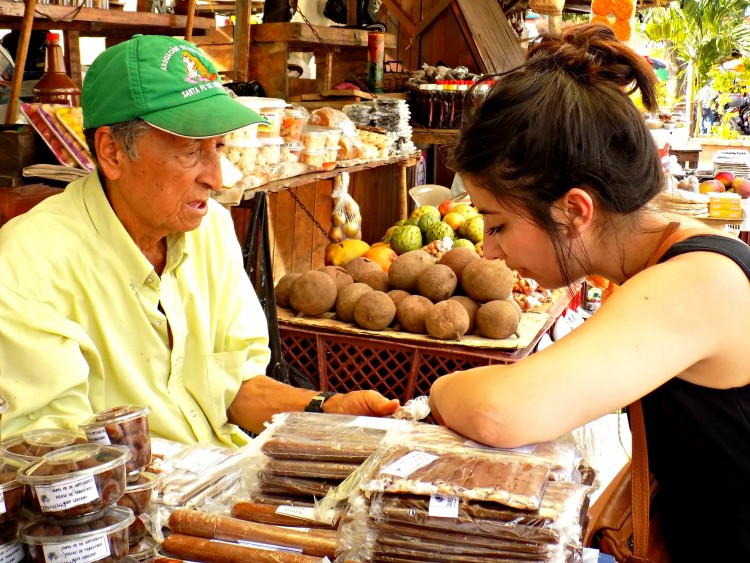
“What are you surprised by?”
I told her I wanted to write this article. “Tell me what surprises you as it happens.” I said.
And, unapologetically, here it is:
- There is no dangerous obesity. At any given moment she would have expected several people among us that were seriously overweight, she didn’t see any.
- People wear very colorful clothes, with lots of flower patterns.
- There are different stereotypes here, Americans are not Colombian’s favorite tourists-according to what she repeatedly heard from strangers- taxi drivers, random pedestrians-who assumed she, like our coffee, was 100 percent Colombian.
- People are extremely polite to each other, even if they aren’t necessarily kind, they speak politely.
- Everyone looks so clean.
- Not many people smoke.
- The size of the orders of the food-she noticed while we ate at Presto-are a lot smaller, but not too small to fill your stomach.
- Very few people wear sunglasses.
- Clothing is very expensive. “Do people actually shop frequently?” she asked.
“This is the best spot in Medellín.”
This is what she said one day while we were sitting on La 70, looking towards a restaurant we had dinner at a few nights prior.
The restaurant is called Dejame Q’ Te Cuente, a mouthful for most foreigners not accustomed to Spanish. It’s my favorite grill in Medellín, for its outdoor seating, great music and warm vibe.
The fact that my server is always the same and remembers my order is comforting; the place makes you feel at home.
Everything is delicious, but on the night we had dinner there with friends, everyone wanted a rib from my stack, so both Monica and I recommend them.
It has been a week, and I have shown Monica little nooks of where I live now, and what our country looks like since she left it. She’s comfortable, happy, but unsettled about the amount of money it takes to pay for a round trip ticket here. She’s a student and fears she won’t be able to come back for years.
In the meantime, she is tasting everything, eating mango when possible-“con mucho limón”- and discovering herself and her culture more and more every day.
Soon, we’ll be heading off to Manizales, and the city that seemed big when she was three feet tall, will probably shrink in front of her eyes to the small, traditional place with growing infrastructure that it is now…and I can’t wait to see what she has to say about it.

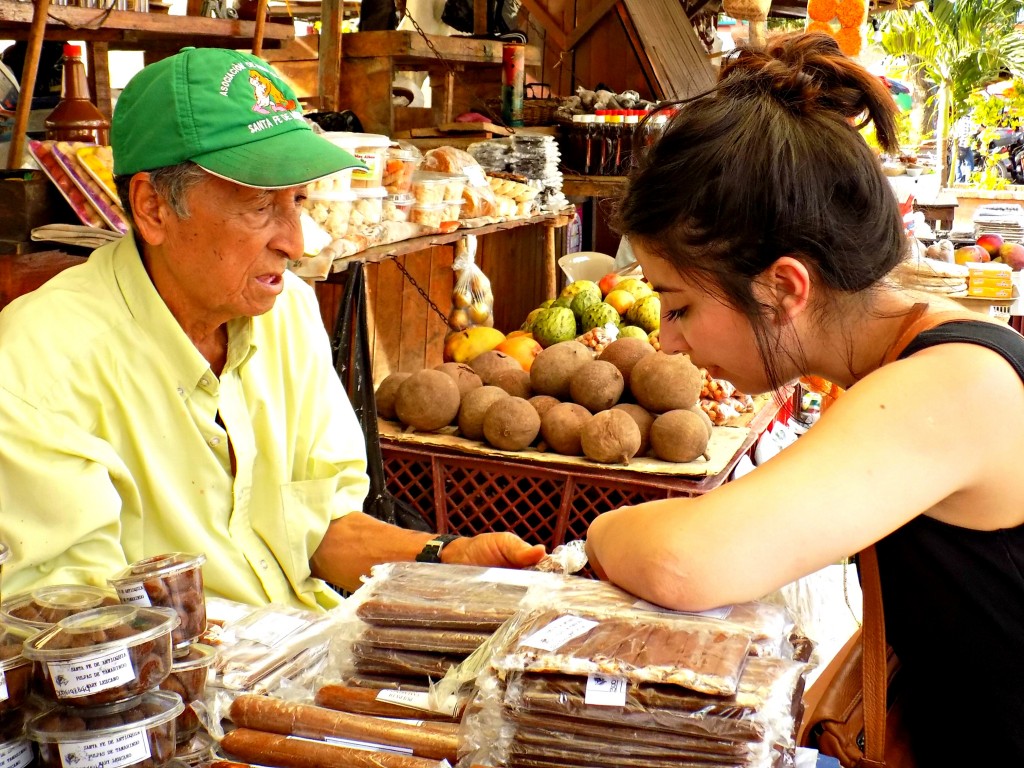

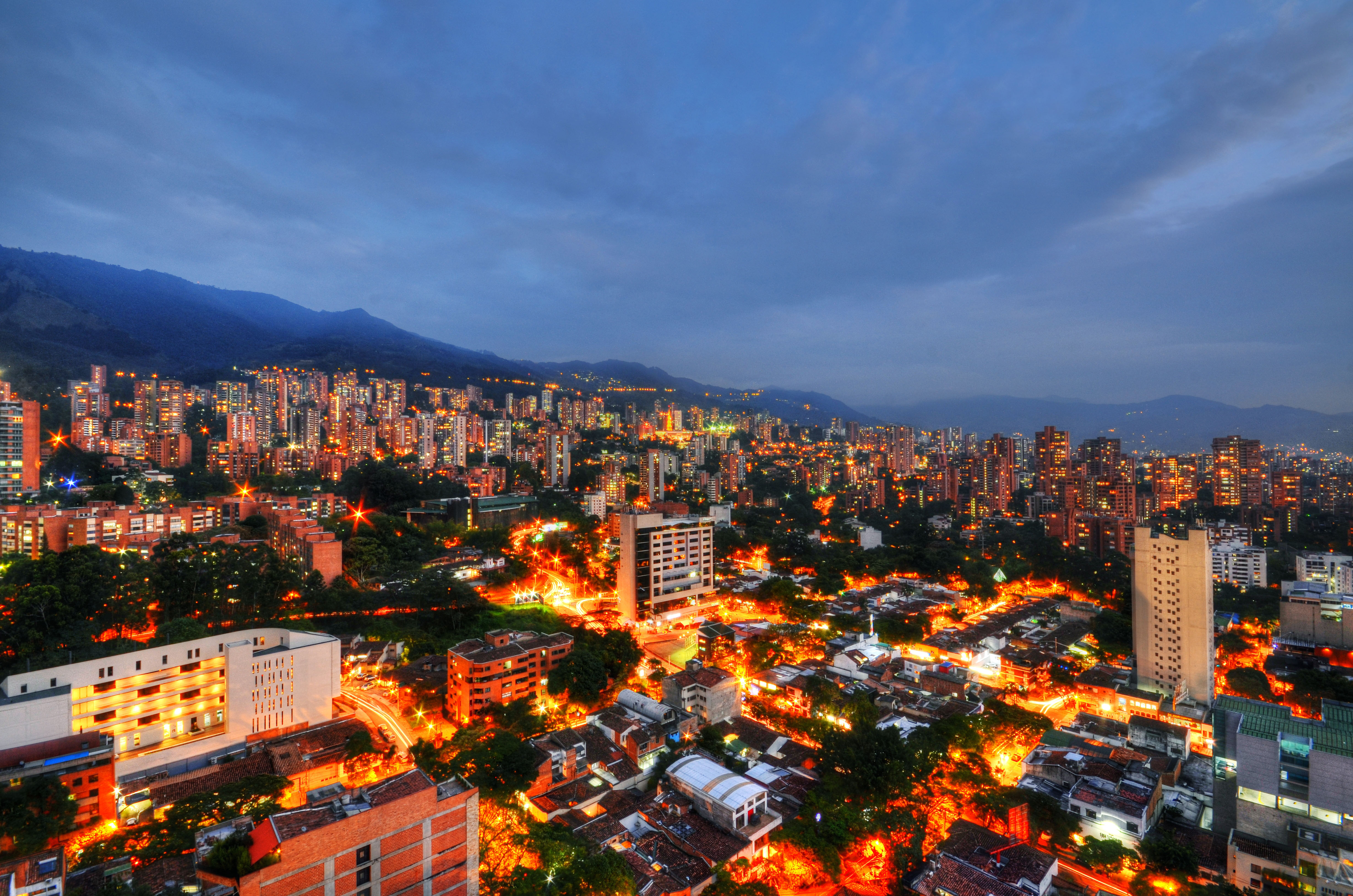

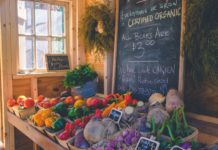






What a beautiful story. My spouse felt the same way when she returned to Cali after 7 years even though she was an adult when she left. The US culture can overwhelm people with it’s fast pace and high stress level in every day life. She was so relieved to return even without the many “luxuries” that she enjoyed in the US. I feel the same way when I visit Colombia even though I was born in the US, I call Colombia my second home and soon hope to call it my permanent one.
So, am I hearing that Colombians dont like Americans?
Interesting.
Hi Steve,
You’re reading that Monica Restrepo in her brief time in Medellín heard negative comments about certain American tourists. However, stating that Colombians don’t like Americans is far too general. Our readers, and other tourists, have experienced an array of different takes on American tourism, some more positive than others. Generalizing tends to be easy but not accurate. To me, it’s interesting to hear all types of experiences.
Thank you for your response and the lovely story. Paisas are always polite to me when I visit. I hope they like me. I always treat them with respect.
What an awesome story! This is one of the best pieces yet on this site. I love Manizales and part 2 of this story has a special place in my heart (even if you don’t write about it), so I hope you both enjoy this lovely city, it’s people, and it’s sunsets.
So I guess the moral of the story is that Colombia is a paradise, where the people lead healthy lifestyles, whilst being effusively polite to one another no matter the situation, while at the same time reviling the Gringos whose tendencies they emulate so closely? Me thinks not. These reflections seem to be a case of the grass is greener on the other side. Clearly, this person wasn’t exposed to how the other half live.
Also, just for the record, most of the garbage coffee consumed in Colombia, isn’t Colombian. That Aguila Roja ain’t 100% Colombian coffee. More likely, it’s from Vietnam or Brazil.
I don’t think the story is saying Colombia is paradise, it is two cousins who are meeting after 9 years apart in which one is seeing her country for the first time in 9 years. She finds Clothes over priced, people polite to your face, and your right the coffee served in Colombia is not the best grown ,they export that, but it not all of it is imported …..
Hello “D”.
I believe that not every story has a moral. This is a telling of a reunion as it happened. Monica identifies as both American and Colombian so both sides are equally hers and equally loved.
For the record, not all coffee grown in Colombia is exported, I invite you to try coffee from Raíces, Pergamino, Amor Perfecto, Café Revolución and many many others grown right in Antioquia and surroundings.
We understand our readers may not indentify with her perspective, but in the end, it is hers and hers alone. All we can do is share, respect and discuss our own experiences in comparison.
In the future, we’d appreciate if you used your full name.
Thanks for reading.
The Coffee places you’re talking about, represent a very tiny fraction of what’s consumed in Colombia. Sorry, but the majority of Colombians can’t shell out the pesos to drink coffee in places like Revlucion and Pergamino. However, the coffee that the majority of Colombians do consume, isn’t from Colombia. In fact, I’d bet that the overwhelming majority of domestic consumption, ain’t Colombian.
I’m not saying that her reactions weren’t genuine, but at the end of the day, all it was, was a reaction. I remember my first visit to Colombia too. As interesting and intoxicating as a visit to a place like Colombia may be for the first time (or the first time in recent memory), we’re basically getting the perspective of Colombia that doesn’t translate to what the reality is here in this country. I understand her initial feelings, but my guess is that they are nothing but someone feeling an overwhelming wave of nostalgia.
As for my name, well, that’s just semantics. This is, after all, an internet forum. Myself along with everyone else, can use whatever name they see fit. And right now, “D” works just fine for me.
Hi D,
You’re welcome to disregard our moderation policy, as it’s a free world, but going forward, your comments will be deleted if they do not include a first name.
We have a moderation policy for a reason. Our writers use their real names, and in the interest of maintaining a positive atmosphere in the comments section, we expect the same of our readers.
That’s not to say we expect them to always agree with us (we don’t), but it’s too easy for people to leave antagonizing comments when they hide behind anonymity (fake names and IP addresses).
Great answer David Lee.
I Love they way how you tell your experiences
And I would give any thing to see each other’s reaction when you meet Monica at the airport
Love you Both
Gustavo Restrepo
I had the good fortune to bring Monica and her sister, Diana on a college service learning trip to Las Pintas, (Guadalajara) Mexico a few years ago. They both served as interpreters for our group as most people in the group were not Spanish speakers – including myself. We set up and operated a dental clinic and a pre school during the week we were there. They both worked very hard and contributed a great deal to the success we had as a group. The week long experience is quite intense and the work days are very long. I see people tested by this experience and when you work, eat, sleep in the same compound, you get to see people for who they are. If I have the opportunity to return to Las Pintas, Monica and Diana would be among the first I would want to include as they were outstanding team members.
I enjoyed reading your story and learning about your friendship. Even though you are separated by the miles/km, I hope you can maintain your friendship throughout your lives.
Regards,
Jeff
Wow Jeff! So good to hear about your experience with those two, Monica was happy to hear about it as well.
Thanks for reading!
Best regards from us both.
Thank you Jefe! I would love to come back to Las Pintas! Let us know and we’ll be happy to help. Thank you for your positive message on my cousin’s blog!
As a Mexican raised in the U.S., I identify with this story. I live my life as a proud Latino American. Those experiences are uniquely hers, but shared by millions of us Latinos everywhere. Glad you shared your story. Thank you!
thank you for sharing your story.